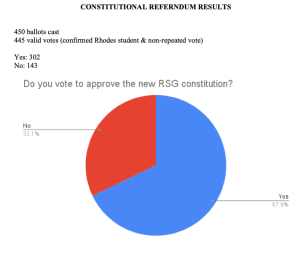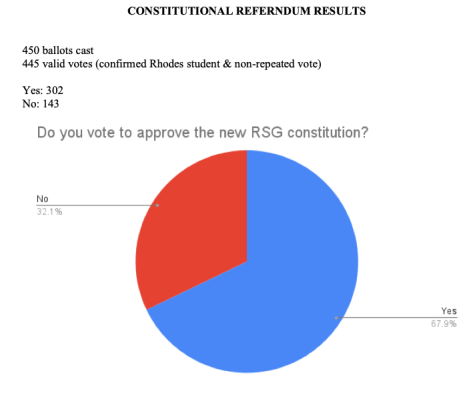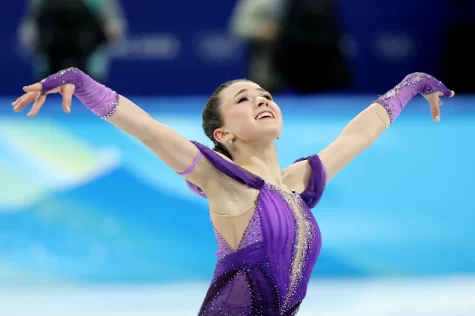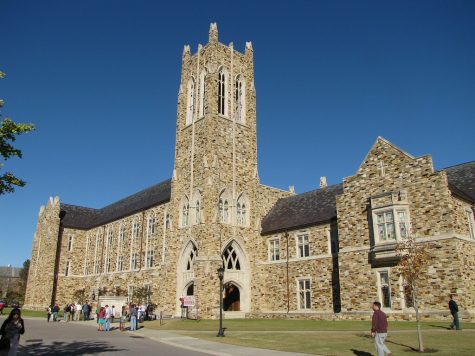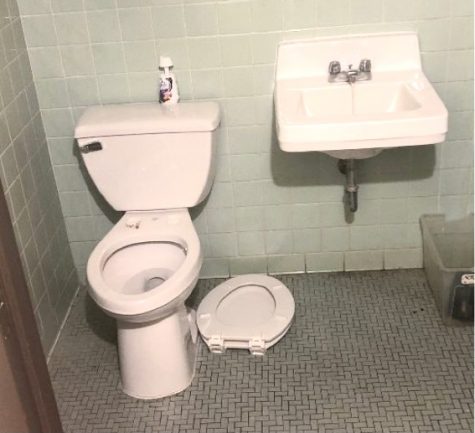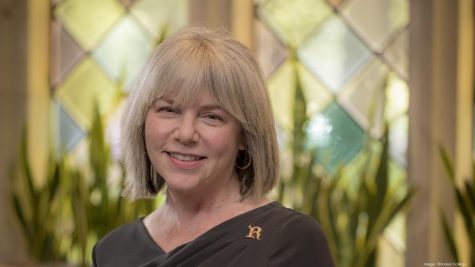Justice through Journalism: Wendi Thomas lectures on civil rights, Memphis history
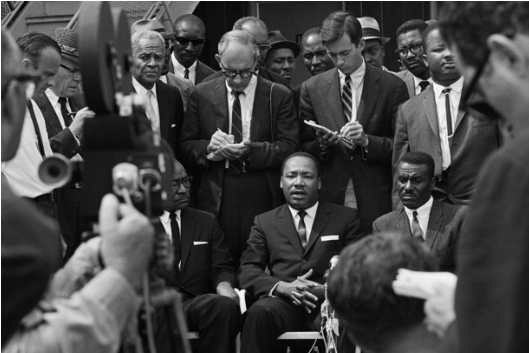
Photo courtesy of The Atlantic
The Rev. Dr. Martin Luther King Jr. with a gaggle of reporters
October 24, 2018
On Thursday, Oct. 4, The Lynne and Henry Turley Memphis Center at Rhodes hosted Wendi Thomas, award-winning journalist and editor and publisher of the MLK50: Justice through Journalism project, to participate in a thought-provoking conversation with Memphis Center Director Charles Hughes on the long traditions of Memphis journalism through the lense of her experience working at the Commercial Appeal and her leadership role in the MLK50 project. The project will be investigating some of the Rev. Dr. Martin Luther King Jr.’s key issues from a contemporary, Memphis-focused perspective.
To use journalism for justice, Thomas argued, one must be willing to look out for the most marginalized people, sometimes taking a 180 degree view from how others might pursue the story. MLK50 was created out of Thomas’ belief that there is not enough justice in the journalism in Memphis. In order to do the unprecedented work of the MLK50 project, Thomas pulled inspiration from the lessons she learned from her parents. During her Nieman Fellowship at Harvard University, she went through a sounding process in which she uncovered the role her parents played in the supporting her as a child and young professional. Without her parents’ commitment to allowing Thomas’ voice to say what she needed to say, MLK50 would not be the project that it has become.
Diversity has often been overlooked as an important aspect of any discipline, but identity is built into journalistic work. It has been shown throughout history that white voices are the normative outlook, and with the MLK50 Project, Thomas has built an experienced new team that reflects the demographics of Memphis. To this end, she’s hired Peruvian-born Andrea Morales and native Memphian Kirstin Cheers, among others. Though they have faced setbacks, Thomas was able to secure national funding to pay her writers and staff.
Before Thomas, there was Ida B. Wells, an outspoken women of color working in journalism who unapologetically led an anti-lynching crusade in the 1890’s through her reporting. Like Wells, who was forced out of Memphis, Thomas has faced the danger that comes with being an outspoken minority in journalism: death and rape threats, and fear for her life. Despite this, her outspoken work within the MLK50 project has brought on a number of triumphs for the unheard voices of Memphis. They have addressed hard issues like the Bridge Protest of 2016 (notably, from the perspective of the protestors), stories from low-income areas and poverty in the project’s upcoming second phase. They will be aiming to potentially change policy in the area for low-income, working class people.
An important aspect of the MLK50 project is it has highlighted voices, professional journalists and citizen journalists alike, who belong to minority populations. In order to accomplish the change in status quo that the project has strived towards, the project has recognized the extreme importance of the role that the audience plays as well. These are all crucial MLK50 goals that Thomas identified during the discussion with Dr. Hughes.
In a tenuous world where nothing is certain and everything is questionable, MLK50 and people like Thomas have been doing the important work of changing the status quo to include the underrepresented voices of Memphis: the poor, the homeless and those living in poverty.




